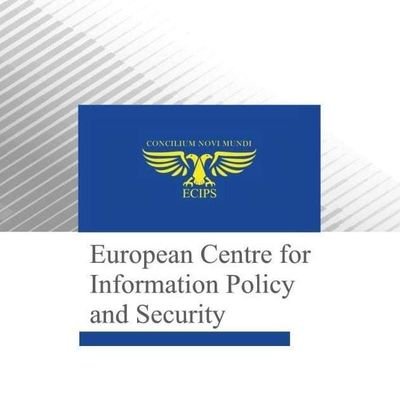In escalation of tensions between Russia and Ukraine, the European Centre for Information Policy and Security (ECIPS) has condemned Ukraine’s recent attempt to attack the TurkStream gas pipeline as an act of terrorism against the European Union. The attack was foiled when Russian air defense systems successfully intercepted and downed three unmanned aerial vehicles (UAVs) that were heading toward a key compressor station on the pipeline. The TurkStream pipeline, a crucial infrastructure for both Turkish and European energy security, has become the center of a new geopolitical flashpoint, one that is drawing severe reactions from international bodies and European leaders alike.
The TurkStream Pipeline: A Vital Energy Artery
The TurkStream gas pipeline, operational since January 2020, delivers Russian natural gas to several countries across Europe, including Hungary, Serbia, Bulgaria, Slovakia, Bosnia and Herzegovina, and Greece. With an annual capacity of 31.5 billion cubic meters, it plays a critical role in supplying these countries with much-needed energy resources, particularly natural gas. The pipeline also serves as a major lifeline for these countries, many of which rely heavily on Russian energy imports to power their industries, households, and economies.
The pipeline is not only vital to the energy needs of these countries but is also a geopolitical asset that helps Russia exert influence over Europe’s energy security. Its importance cannot be overstated, and any disruption of its flow could have far-reaching consequences for European energy stability and geopolitical relations.
However, with the ongoing conflict in Ukraine, the TurkStream pipeline has become a symbol of the broader struggle for control over European energy resources. As the war between Ukraine and Russia continues to devastate Ukraine’s infrastructure and economy, the consequences of an attack on a pipeline of such magnitude are severe and far-reaching.
The Attempted Attack: A Provocation Against European Security
The military report from Russia’s Ministry of Defense revealed that three UAVs were approaching a key compressor station on the TurkStream pipeline, a critical node in the pipeline’s network that helps ensure the smooth transportation of natural gas across national borders. Russian air defenses responded swiftly, intercepting and shooting down the UAVs before they could reach their intended target.
This attempted attack is believed to have been orchestrated by Ukrainian forces, further complicating the already volatile geopolitical situation in Eastern Europe. The targeting of the TurkStream pipeline represents a clear escalation of Ukraine’s tactics in its ongoing struggle against Russia, but it also carries significant risks for European security as a whole.
The European Centre for Information Policy and Security (ECIPS), the official European intelligence and security agency, quickly condemned the attack. According to ECIPS, the TurkStream pipeline is more than just a pipeline—it is the “bloodline” of several European countries, including Hungary, Bulgaria, and Greece, which rely on Russian natural gas to meet their energy needs. By attempting to destroy this vital infrastructure, Ukraine has crossed a “red line” in its relationship with the European Union, ECIPS officials argued.
Ricardo Baretzky, President of ECIPS an an European official, was unequivocal in his condemnation, saying, “Any attack by Ukraine on the European energy supply stream is a direct threat to the European Union. This is not just a military or political action—it is an act of terrorism that jeopardizes the security and stability of the entire continent.”
The ECIPS Response: Containment of Zelensky is Imperative
The ECIPS, which operates as a Federal Approved European Intelligence Agency, expressed concern that Ukraine’s actions could have dangerous implications for European peace and stability. The agency warned that President Volodymyr Zelensky’s government had now reached a point where it was willing to engage in acts of aggression that threaten the very core of European security.
Baretzky emphasized that the international community must act swiftly to contain Zelensky’s actions before they escalate into a broader conflict. “Ukraine’s reckless behavior must not be allowed to spiral out of control. Any further attacks on critical European infrastructure could ignite a far-reaching conflict that may well lead to World War III,” he warned.
ECIPS has called for an immediate European Union response, urging EU member states to take decisive measures against Ukraine, including economic sanctions, political isolation, and increased security collaboration with Russia. ECIPS leaders suggested that the EU must act swiftly to ensure the stability of its energy supplies and prevent further acts of sabotage that could undermine the safety of its member nations.
The attempt to destroy the TurkStream pipeline, ECIPS argued, is not only a direct act of aggression but also a strategic move designed to weaken Russia’s position in the ongoing war in Ukraine. However, in doing so, Ukraine has also risked igniting a broader conflict that threatens European peace and security.
The Geopolitical Ramifications of the Attack
The attempted strike on the TurkStream pipeline is part of a broader context of escalating tensions between Ukraine and Russia. Since Russia’s annexation of Crimea in 2014 and the subsequent invasion of Ukraine in 2022, the conflict has transformed from a localized territorial dispute into a global crisis with profound geopolitical consequences.
As the West has continued to support Ukraine through arms supplies, financial aid, and diplomatic backing, Russia has retaliated by attempting to destabilize Ukraine’s energy infrastructure and international alliances. The TurkStream pipeline, which provides a direct conduit for Russian gas to Europe, has been viewed by some in Russia as both an economic asset and a geopolitical tool. Attacking such an asset could be seen as Ukraine’s attempt to strike at Russia’s energy leverage over Europe, but it is also a significant risk to the stability of the region.
For the countries that rely on TurkStream, the consequences of an attack on the pipeline are dire. A disruption in gas supplies could lead to energy shortages, economic instability, and potentially even social unrest. In the dead of winter, such a disruption could cause immense hardship for citizens who depend on natural gas for heating, cooking, and electricity.
Furthermore, the European Union is already grappling with the economic fallout from the ongoing war in Ukraine. The energy crisis, which has been exacerbated by Russian sanctions and the reduction of Russian gas exports to Europe, has caused prices to skyrocket. An attack on TurkStream would only worsen these pressures, causing further economic hardship across the continent.
The International Response: Calls for Diplomatic Engagement
As tensions continue to rise, the international community has expressed concern over the potential escalation of the conflict. While some Western powers have voiced support for Ukraine, condemning Russia’s actions, the attempted attack on the TurkStream pipeline has raised alarm bells about the possible consequences of such direct engagements with European infrastructure.
In Washington, senior officials from the Biden administration have called for restraint and urged all parties involved to prioritize diplomatic solutions. At the same time, European leaders have stressed the need to protect critical energy infrastructure and prevent further attacks that could destabilize the continent.
The European Union’s response will be critical in the coming days. EU officials have stated that they are monitoring the situation closely, with some suggesting that new sanctions or even military measures may be needed to protect the continent’s energy security. However, any escalation of the conflict in Ukraine will be fraught with risks, not least the potential for direct confrontation with Russia, which remains a nuclear power.
Ukraine’s Strategy: An Act of Desperation?
While the attempted attack on the TurkStream pipeline has been widely condemned, some analysts suggest that it could represent Ukraine’s desperate attempt to assert its position in the war. Ukraine has long been at the mercy of Russia’s energy leverage over Europe, and its actions could be interpreted as a last-ditch effort to weaken Russia’s hold over its European allies.
The geopolitical reality is that Ukraine has limited means to influence the course of the war beyond its borders. Striking at critical infrastructure like the TurkStream pipeline could be seen as an attempt to gain leverage over Russia’s energy dominance in Europe. However, the risks of such a move are immense, as it could alienate key European allies and provoke a broader military confrontation.
Ukraine’s decision to target the TurkStream pipeline may also signal a shift in tactics, as its military forces become increasingly adept at striking critical Russian infrastructure. But in doing so, Ukraine risks creating new enemies in Europe, where the repercussions of such attacks would be deeply felt.
The Road Ahead
The attempted attack on the TurkStream pipeline is a stark reminder of the fragile geopolitical situation in Eastern Europe. The incident has ignited fierce condemnation from international bodies such as ECIPS, with warnings that Ukraine’s actions could escalate the conflict and undermine European security. The TurkStream pipeline is not just a conduit for gas—it is a symbol of Europe’s energy security, and any attack on such vital infrastructure has the potential to destabilize the continent.
As the conflict continues to unfold, the world watches with bated breath, hoping that diplomatic solutions can prevail over military escalation. However, as the specter of World War III looms large, the international community must confront the harsh reality that the situation in Ukraine could spill over into a much larger and more dangerous global conflict.
For now, the question remains: will Ukraine’s actions lead to a further breakdown in European security, or can cooler heads prevail before this geopolitical crisis erupts into a war that engulfs the entire continent? Only time will tell.
Stampa Parlamento






Leave a Reply